Aseem Chhabra New York
February is a strange time for a film festival in Europe, since winter is at peak and it is tough to be out. But some will argue that it is the best time to spend time in heated dark movie theatres and discover new cinematic gems.
The just concluded 63rd Berlin Film Festival heralded what could be another strong year for films. There were many surprises, but most special of all were three films from smaller countries and newly emerging centers of world cinema: Chile (Gloria), Kazakhstan (Harmony Lessons), and Romania (Child's Pose).
Here are Aseem Chhrabra's Top 10 Picks at the Berlin Film Festival, plus two special mentions -- films that will soon make the rounds of the other international film festivals and get theatrical releases.
Before Midnight (USA)
It has been 18 years since writer-director Richard Linklater introduced us to Jesse and Celine -- a young couple who met in a train in Europe and then spent a romantic night together in Vienna (Before Sunrise). They were back again in 2004 spending a day in Paris (Before Sunset), catching up with their lives -- their loves, their failures.
Now, Linklater along with the good looking and perceptive actors -- Ethan Hawke and Julie Delpy -- bring us the third chapter in the lives of Jesse and Celine. In Before Midnight, the two are together with their twin daughters and their pasts that still pull them.
Before Midnight has less heartbreak, more romance but most of all the realties of middle age, learning to compromise and find happiness with the cards that have been dealt. Before Midnight is as real and thoughtful as Hollywood gets. It is everybody's story and a special treat for fans of Jesse and Celine.
Child's Pose (Romania)
Image: A scene from Child's PoseSince the mid-2000s, the post-communist Romania has surprisingly emerged as a country producing remarkable world-class films. We have been enthralled by films like 4 Months, 3 Weeks and 2 Days, Police, Adjective and the recent Beyond the Hills.
Director Calin Peter Netzer's Child's Pose -- the top Golden Bear winner at the Berlinale this year -- is a deeply disturbing story that explores power, class dimensions and a mother's obsessive love. It is a story that could be placed in any part of the developing world and would be very familiar to audiences in India.
In the film, a spoilt, but confused son of a wealthy couple is engaged in a hit and run accident, which kills a young boy from a rural area. Thus begins a tragic story about guilt, loss and the mother who will go to any length to save her own son, even though he would much rather not have anything to do with her.
A thoroughly satisfying film, Child's Pose introduces us the wonderfully talented Luminita Gheorghiu, who plays Cornelia, the mother from hell.
Forgetting To Know You (China)
Image: A scene from Forgetting To Know YouA small film from China, Forgetting Your Face is a story about a young lower middle class couple and their troubled marriage.
First-time director Quan Ling does not believe in exploring the reasons for why this marriage in a provincial town is falling apart. He is more interested in looking at daily heartaches, mistakes -- sometimes deliberate -- that the couple make that draws them apart.
A very real look at life hampered with financial pressures, jealousies and love that is lost, Forgetting To Know You is a rare film that gives a reflection of the contemporary Chinese society.
There is no talk of politics and human rights -- issues in China that the west is often concerned about. Forgetting To Know You is more of a personal piece that could develop in any part of the world.
Gloria (Chile)
Image: A scene from GloriaThis beautiful film from Chile focuses on the loves, desires and life of a middle aged divorced woman.
Gloria, played with remarkable finesse by Paulina Garcia (winner of the Silver Bear for Best Actress), spends her evenings in a night club for older people, drinking, dancing, and checking out desperate older men.
And in what may be a first, Gloria shows what is rarely explored in films -- older actors (in their 60s and 70s) completely naked, performing sexual intercourse.
Gloria's world is often lonely -- her adult children are settled, managing their own lives' disappointments, ex-husband is remarried, and the one man she connects with is still tied up with his ex-wife and family.
Director Sebastian Lelio's film reminds us not to feel sorry for characters like Gloria. They will find their own happiness and balance in life.
The Grandmaster (China)
Image: A scene from The GrandmasterYears in the making, Hong Kong master Wong Kar-wai's stunning looking martial arts film The Grandmaster opened this year's Berlinale.
The film -- starring Ziyi Zhang and Tony Leung -- is a visually sumptuous experience examining the life of Ip Man, the master who taught martial arts to Bruce Lee.
Shot by the French cinematographer Philippe Le Sourd (the second time Kar-wai has not worked with his regular cinematographer Christopher Doyle), each frame in The Grandmaster looks likes a piece or art, beautifully lit, designed and choreographed.
But as it sometimes happens with films of such a large scale, the high art and the emphasis on look dilutes the dramatic content. So at times, it feels as if in The Grandmaster's story, the characters take a secondary seat to style.
The film also comes with its set of myths. Kar-wai reportedly did not work with a script, as has been the case in his other productions. The original cut of the film was four hours long and Kar-wai reduced it by more than an hour for the China release.
But none of this should matter to Kar-wai's fans eagerly awaiting his new film, after the 2007 release of My Blueberry Nights. The Grandmaster is worth the wait.
Harmony Lessons (Kazakhstan)
Image: A scene from Harmony LessonsHarmony Lessons opens in a quiet, but a very disturbing manner.
A 13-year-old boy in a cold, barren, rural setting catches a sheep then slaughters it. This is just a taste of what the rest of the brilliant, although harrowing feast, director Emir Baigazin offers to us.
The boy Aslan (Timur Aidarbekov) lives with his grandmother and is subject to intense bullying by a gang of classmates. At home, he catches cockroaches and tortures the insects, all the while planning a way in which he can retaliate against his tormentors.
Brilliantly acted by the cast of young boys and directed by Baigazin, Harmony Lessons is a powerful portrayal of a harsh society where torture, killings, revenge are the norm that even young teenagers have to face.
Harmony Lessons was considered to be in the running for the Golden Bear but lost out to Child's Pose. The film did win the best cinematography award.
In The Name Of (Poland)
Image: A scene from In The Name OfIn The Name Of tells a story that has been filmed before -- a priest struggling with his homosexuality.
But director Malgoska Szumowska gives a new twist to the old story that the Catholic Church would want to go away forever.
The setting of In The Name Of is a small village, where the new priest (Andrzej Chyra) runs a parish along with a home for juvenile male teenagers. The priest is a long distance runner and also plays soccer with teenagers, hoping that physical exercise will suppress his desires. But soon he finds himself attracted to a young villager.
A lot of In The Name Of is heartbreaking and tragic and the film's emotional journey is enhanced by Chyra's performance, his kind and caring bearded face, and soulful eyes. The film is a moving drama, with the right emotional tone.
A Long and Happy Life (Russia)
Image: A scene from A Long and Happy LifeRussia's A Long and Happy Life narrates a story we are familiar with -- a young farmer, affected by the economy, is forced to sell his land to a local developer.
Strong performances (especially by lead actor Alexander Yatsenko), a script with surprises and heart, and stunning cinematography save the film from becoming a routine drama.
In director Boris Khlebnikov's hands, A Long and Happy Life becomes a gripping film, told in a precise manner and in less than 80 minutes. More than anything else, A Long and Happy Life is a terrific example for young filmmakers to narrate their compelling stories in a crisp manner.
Nobody's Daughter Haewon (Korea)
Image: A scene from Nobody's Daughter HaewonDirector Hang Sang-Soo's films are markedly different from works of other Korean filmmakers, who are often dealing with violence, horror, sexual depravity and incest. Sang-Soo instead makes lighter films, focusing on romance, but his characters are often sad.
His male protagonists are lost souls -- filmmakers themselves, dissatisfied with their work and personal life. They are looking for love at the wrong places, sometimes seducing younger women who have their own issues.
In Nobody's Daughter Haewon, Sang-Soo looks at a college student Haewon who rekindles her relationship with an insecure professor and a former filmmaker. Their goals are never the same, and they find it hard maintain a permanent relationship despite the attraction to each other.
With a healthy dose of laughter and sadness, Nobody's Daughter Haewon gives us a taste of a society, especially its youth in flux.
Pard (Iran)
Image: A scene from PardIranian master Jaffer Panahi's tragic case has been widely reported. For his political activity, Panahi is facing six years of imprisonment as well a 20 year ban on filmmaking. But despite his problems, his creative heart continues to beat.
In 2011, he was able to smuggle a personal documentary This Is Not A Film to the Cannes Film Festival. It was a poignant reflection of a desperate man, who is trying hard to keep his head above the water, despite the state's efforts to silence him.
Parde or Closed Curtains -- winner of the Silver Bear for Best Script -- can be referred to as This Is Not A Film Part 2.
The film is set in a beach house, where an old man is hiding with a dog. He shuts himself off from the rest of world by closing all the curtains, until a young man and woman almost break in. The old man is thus forced to come to terms with his realities.
Parde is full is hidden meanings and symbols that reflect the reality of Iran. In between the film Panahi -- as if he was tired of the old man representing him -- makes a surprise appearance, clearly stating that he cannot be silenced by the voices that disapprove his works.
Special Mentions
Image: Scenes from Dark Blood and The Necessary Death of Charlie CountrymanDark Blood (Netherlands)
The sudden and tragic death of River Phoenix in 1993 left one project incomplete -- director George Sluizer's Dark Blood that had 10 days of shooting left. The film lay in cans, until Sluizer decided to finish it with a voiceover narrative for the incomplete scenes.
The result is a strange and yet engaging film with Phoenix playing Boy, a Native American young widower, living with his dog in the Nevada desert in an area contaminated after repeated nuclear tests. Then one day, he has visitors -- a married couple (played by Jonathan Pryce and Judy Davis) -- and Boy's world is rattled.
Dark Blood plays with the themes of youth, age and infidelity. But in keeping the film a three-actor drama Sluizer gives us a tightly knit story and more important one last chance to watch the handsome and very talented Phoenix.
The Necessary Death of Charlie Countryman (US)
The Necessary Death of Charlie Countryman drew extreme reaction from people attending the press screening. Many hated the film, while others marveled at its style.
Director Fredrik Bond's Charlie Countryman lacks a strong story but those who are patient will be rewarded by this mad adventurous drug-induced journey into the dark side of a colorful Bucharest. The passenger on this adventure is a hip looking Shia LeBeouf, who decides to fly to Bucharest to fulfill his mother's last wish. During the flight, his co-passenger -- an elderly Romanian man -- dies in his sleep.
More surprises await Charlie Countryman in Bucharest where he meets dangerous criminals, jealous lovers and a drugged out British tourist.
Charlie Countryman is a wild joyride, with amazing cinematography, a terrific soundtrack and a group of funky international actors -- the Danish Mads Mikkelsen, German Til Schweiger and a hilarious Rupert Grint.


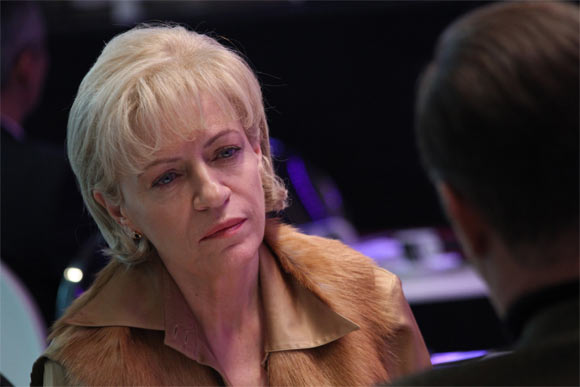
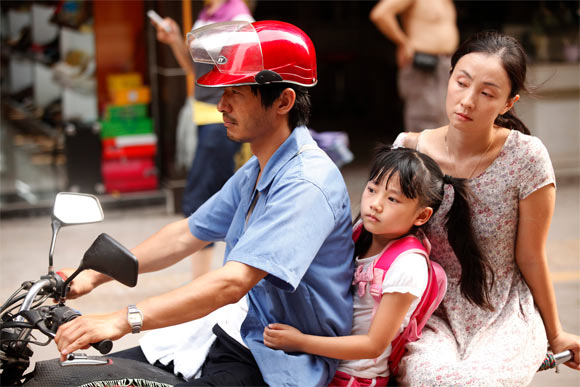
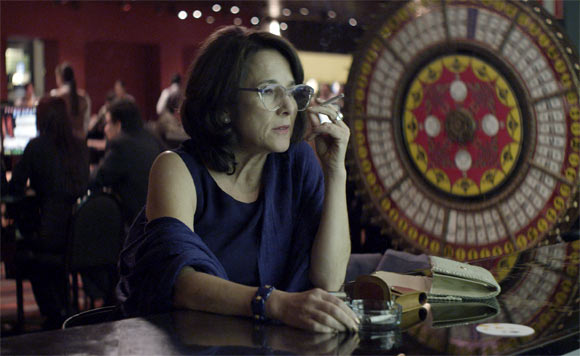
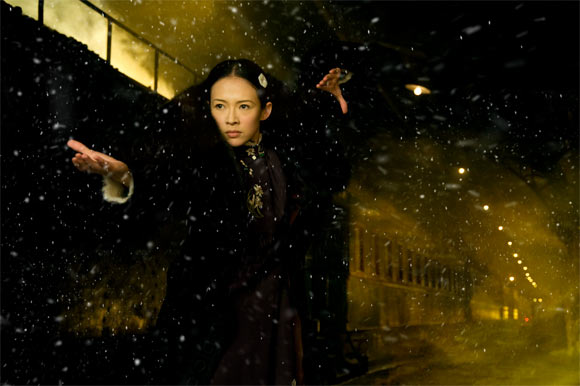
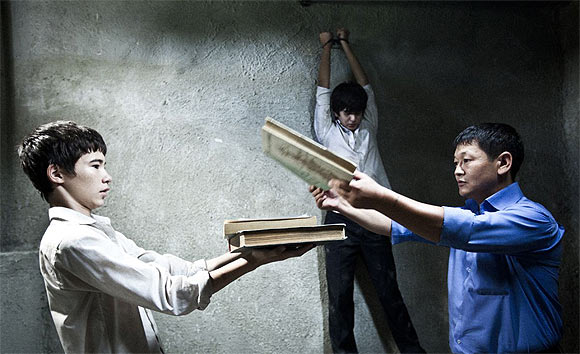
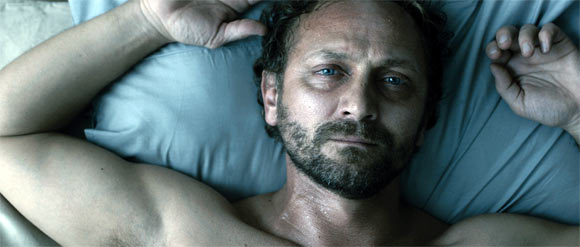
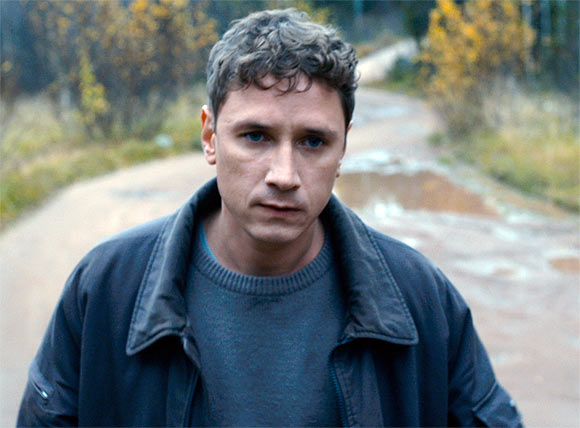
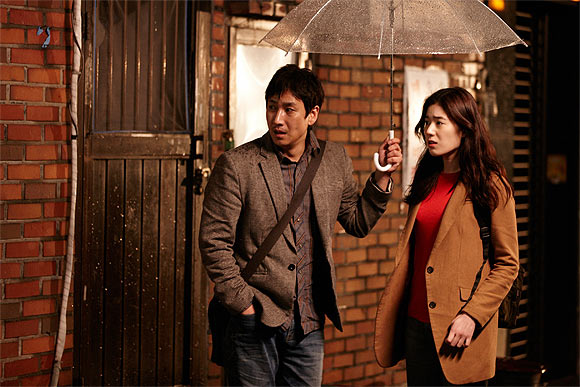
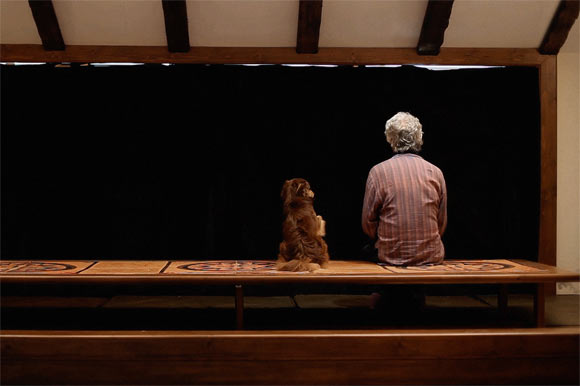
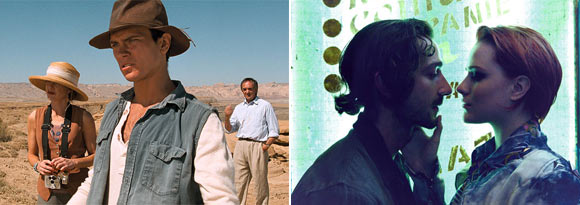
Comment
article